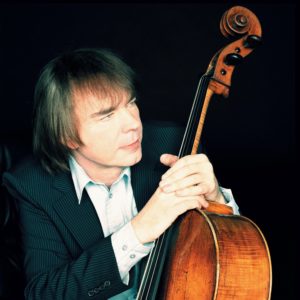London Symphony Orchestra, Uchida, Davis, Barbican Hall
It says something for Sir Colin Davis’ eternal vitality and musical curiosity that he should come to the dynamic Carl Nielsen symphonies so late in life. The Sixth and last of them carries the elliptical subtitle “Sinfonia Semplice” and surprise, surprise, is anything but “simple”. With the chiming of the glockenspiel (so redolent in spirit and tone of the last Shostakovich symphony) it is just as if we are re-entering the nursery of life, the playroom, where not a lot makes sense but everything is possible.
You have to be old enough to grasp the ironies of this playfully subversive piece and the devilish glint in Davis’ eye more than suggested what we’ve known all along – that the anarchy of a second childhood is more fun when you are old enough to care less. For Nielsen’s part, the subversive harmonies that curdle the carefree opening theme are at once a statement of belligerence. This music is deliciously fitful in its refusal to conform. Nielsen toys with the old forms of fugue and variation but invasions of renegade brass and the like keep predictability (and sanity) at bay. Not for nothing is the slow movement called Proposta seria (“A serious proposition”): a brief but intense fugue is precisely that – a proposition which Nielsen soon thinks better of and abandons mid-phrase.
The London Symphony Orchestra pulled no punches and the percussion and bassoon-led “Humoreske” suggested the “modernist” musical equivalent of Toy Story. What other major symphony do you know that ends with a fart? Last raspberry, last laugh.
Earlier Davis offered Haydn (Symphony No.99) that was a little thick around the middle and the Second Beethoven Piano Concerto with Mitsuko Uchida. There is a very special relationship going on between these two and as Beethoven increasingly surprised and tantalised and finally startled us with the tumultuous first movement cadenza, it was as if the Haydn and Mozart models had been exploded once and for all.
Uchida is such a magical player. Her nose for atmosphere is transforming and with each modulation here we breathed a different air. Hers was a very contained rapture in the slow movement and in the finale the give and take with Davis and the orchestra was the very essence of what concerto playing is all about. As a portent of Nielsen’s playfulness, Beethoven and Uchida’s teasing attempts to call a halt to the dancing was cheekily suspenseful.
You May Also Like

COMPARING NOTES: Kim Criswell in Conversation
15/09/2020
Julie’s “sprechstimme”
09/05/2010
